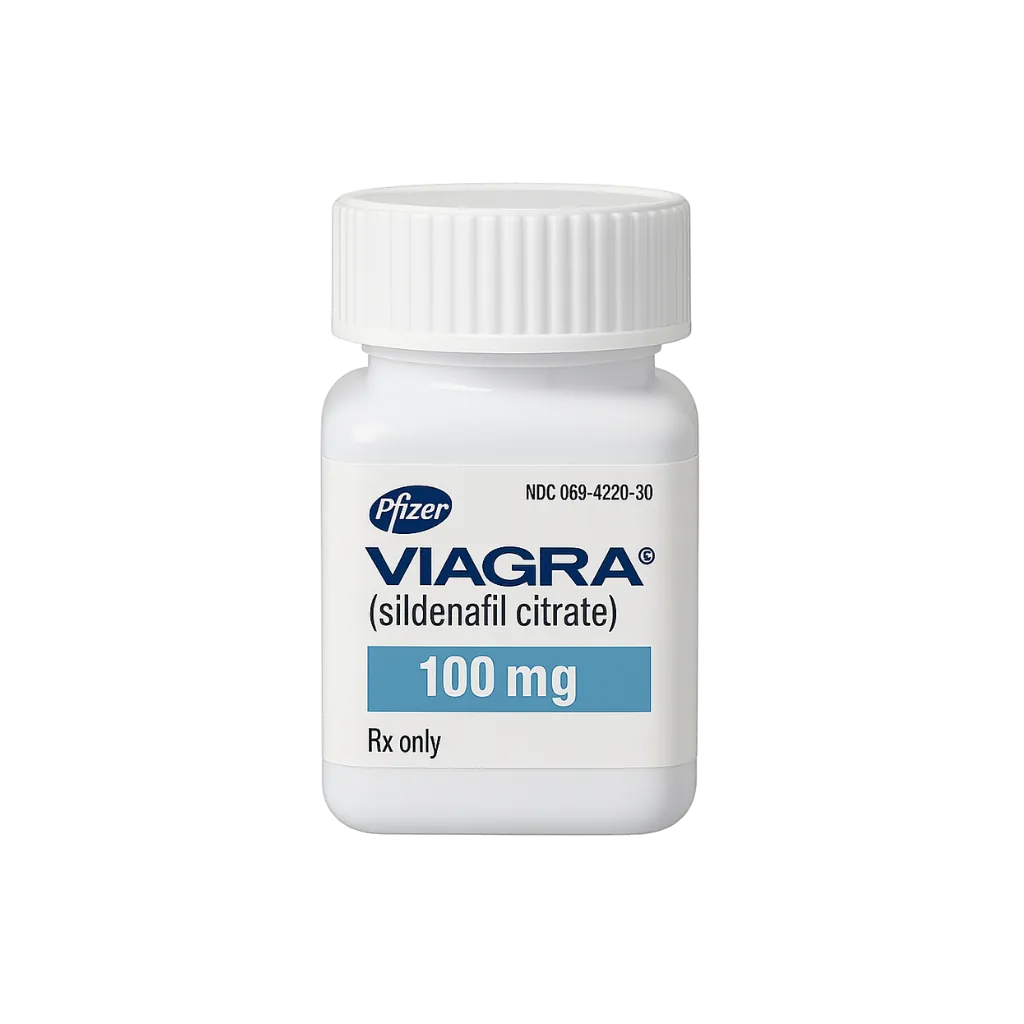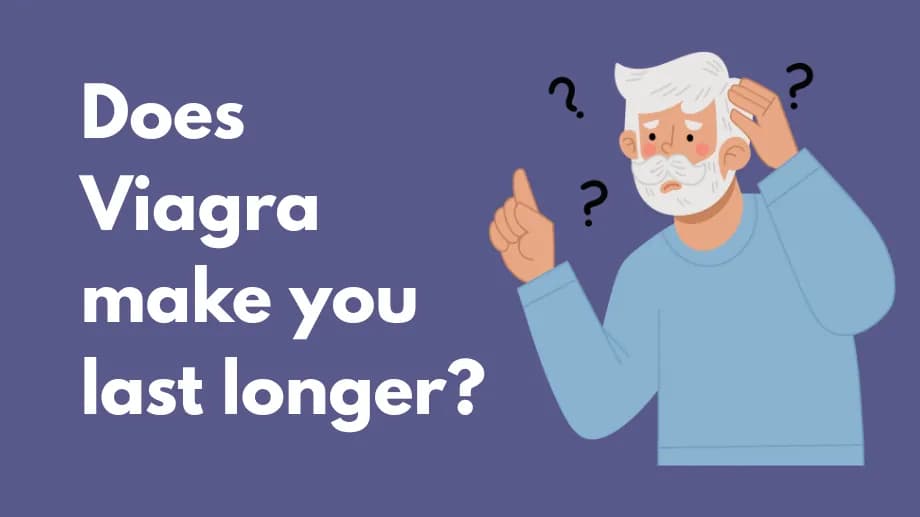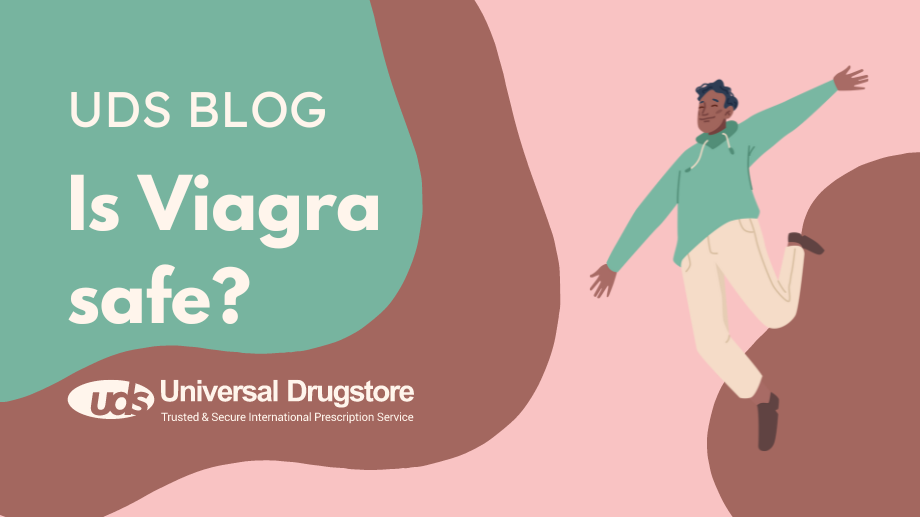How does Viagra work?

Viagra (sildenafil) is an oral medication that is taken as needed to treat erectile dysfunction (ED). The active ingredient in Viagra, sildenafil citrate, is a PDE-5 inhibitor. Phosphodiesterase type 5 (PDE-5) is an enzyme (protein) in your body that breaks down the molecules that normally cause an erection. When it blocks PDE-5, Viagra helps an erection occur by widening your blood vessels to allow more blood flow to your penis. However, you must be sexually stimulated to get an erection while taking Viagra. For most people, Viagra works the first time they use it. But for other people, they may need to take it a few times to get the desired effect.
Read on as we discuss everything you need to know about Viagra by answering some frequently asked questions.
Viagra FAQs
What is Viagra?
Viagra, also known as the “blue pill”, is an oral brand-name ED treatment that is approved by the U.S. Food and Drug Administration (FDA). With ED, you’re unable to have or maintain an erection. Like other treatment options in its class of medications, Viagra only works if you combine it with sexual arousal.
Sometimes, sildenafil is also used to treat a condition called pulmonary arterial hypertension (PAH) under the brand name Revatio. You should not take ED medications such as Viagra if you are currently taking Revatio.
What are the side effects of Viagra?
The most common side effects of Viagra in clinical trials when compared to placebo include:
- Headache
- Flushing
- Indigestion
- Changes in vision or light sensitivity
- Stuffy nose
Some other possible side effects may include:
- Back pain
- Dizziness
- Muscle ache
- Nausea
- Rash
Rarely, Viagra may cause serious side effects such as:
- Severe allergic reactions (hives, swelling, trouble breathing)
- Heart problems (Viagra should not be used by people with serious heart failure or recent heart attacks/strokes)
- Low blood pressure, especially when taken with nitrates, alpha-blockers, or ritonavir
- Prolonged or painful erections (seek medical attention for erections lasting more than 4 hours)
- Vision loss from NAION
- Hearing loss, tinnitus, or dizziness
These are not all the possible adverse effects of Viagra. Always seek medical advice from your healthcare provider. You can report side effects to the FDA at 1-800-FDA-1088 or www.fda.gov/medwatch.
Who should not take Viagra?
You should not take this medication if:
- You have an allergy to sildenafil or any of its inactive ingredients
- You take nitrate medications (e.g., nitroglycerin)
- You use street drugs called “poppers” (e.g., amyl nitrate)
- You take guanylate cyclase stimulators like Adempas (riociguat)
Shop Medications
What does your healthcare provider need to know before taking Viagra?
Your healthcare provider should know about all your conditions, including:
- Heart problems or surgeries in the last 6 months
- Stroke
- Pulmonary hypertension
- Uncontrolled high or low blood pressure
- Priapism (erection lasting more than 4 hours)
- Peyronie’s disease
- Blood cell disorders
- Retinitis pigmentosa
- Severe vision loss
- Bleeding problems or ulcers
- Liver or kidney issues
Are there any drug interactions with Viagra?
Yes. Viagra may interact with:
- Nitrates, alpha-blockers, or blood pressure medications (risk of low blood pressure)
- CYP3A4 inhibitors like ketoconazole, ritonavir, erythromycin, or itraconazole (increased risk of side effects)
How do you use Viagra?
Take Viagra exactly as prescribed. Typically:
- Take 30 minutes to 4 hours before sexual activity
- Works best on an empty stomach
- Do not take more than once a day
- Call a doctor if you overdose
How long does Viagra last?
For most people, Viagra lasts at least 4 hours. You may be able to have more than one erection during this period. If you have an erection longer than 4 hours, seek immediate medical help to avoid damage to your penis.
What happens after a man takes Viagra?
Viagra takes about 30 minutes to start working, but it won’t work without sexual stimulation. Once active, it increases blood flow to the penis. Most users can maintain an erection and may notice a shorter refractory period between erections.
Can STIs cause erectile dysfunction?
Yes. STIs such as chlamydia, HIV, gonorrhea, and hepatitis can infect the prostate and cause ED. Treating the infection and managing the STI typically helps resolve ED. Untreated prostate infections can cause long-term damage, so consult your healthcare provider promptly.
Related medications
- Cialis (tadalafil)
- Levitra (vardenafil)
- Stendra (avanafil)
- Caverject (alprostadil)
- Caverject Impulse (alprostadil)







